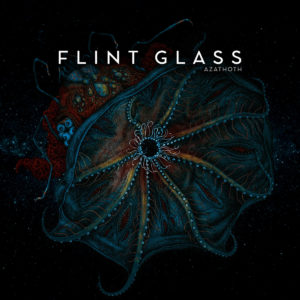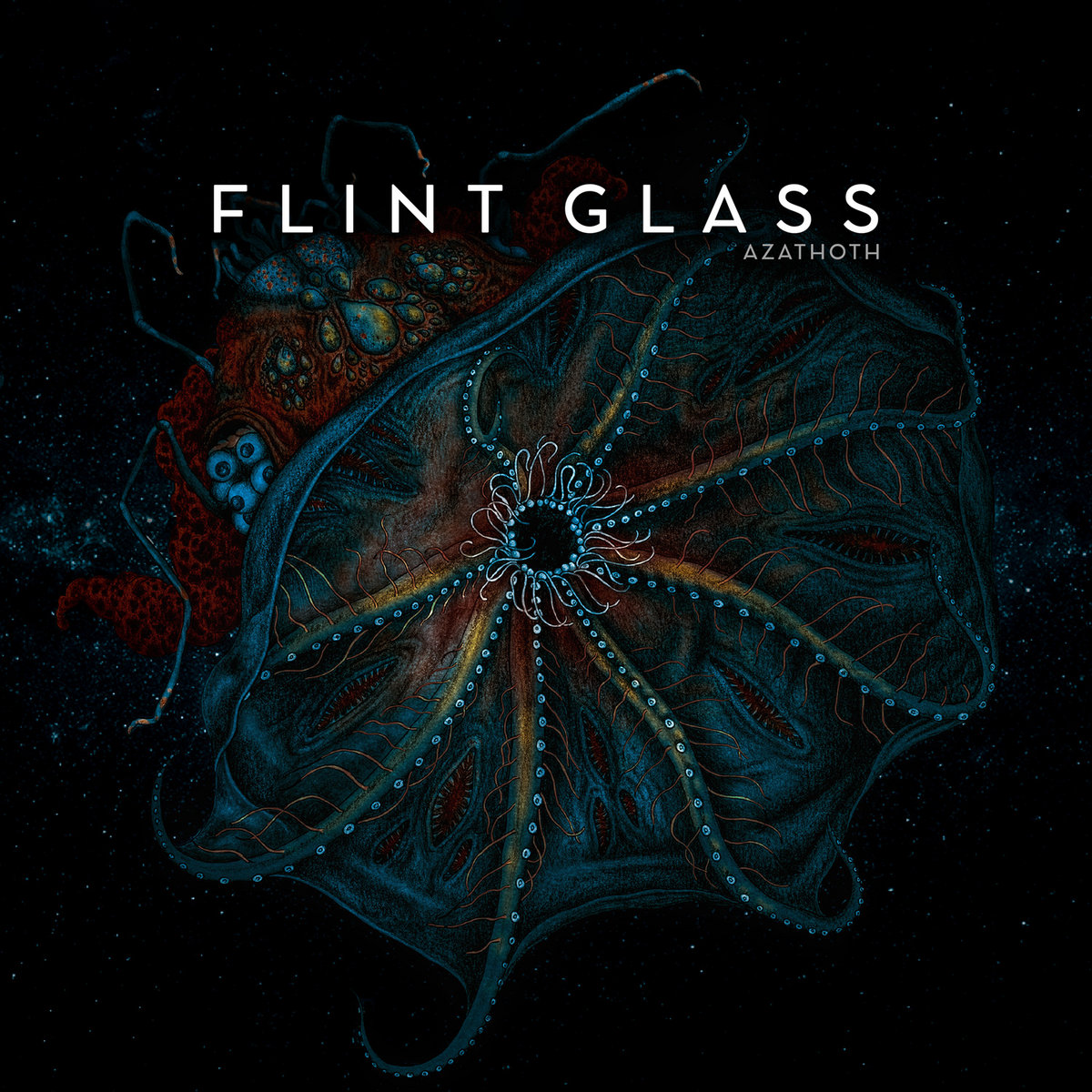
Flint Glass
Azathoth
Ant-Zen
A great deal has happened with Flint Glass since 2006’s Nyarlathotep, the record which first put Paris’ Gwenn Trémorin on my radar. In the intervening years Trémorin’s worked on a large number of collaborative projects, and has somewhat dialed back on the specifically post-industrial influenced cinematic ambiance and rhythmic noise with Flint Glass, aiming instead for a dusty, noir-influenced style of downtempo, which has yielded records like last year’s very enjoyable Psychopomps. Returning to the abyssal well of Lovecraftian inspiration sixteen years after Nyarlathotep, Azathoth nicely connects the past and present of Flint Glass.
As someone who’s spent a large amount of time listening to Lovecraft-themed music, it’s always interesting to try to parse out how musicians seek to evoke the themes and mood of his writing, and in the case of purely instrumental records like Azathoth, to think about whether or not Lovecraftian themes or imagery might come to mind were the music itself free of that context. A good portion of the record simply feels like some of the aforementioned recent Flint Glass work. The spacey, Schulze-like phases of “Nyctelios” and the downright warm and cozy downtempo lope of “Lu-Kthu” might not immediately bring the album’s titular Blind Idiot God who sits at the chaotic heart of the galaxy to mind, but hey, they at least showcase Trémorin’s sound design skills and how his time in the Tzolk’in project has shaped his rhythmic instincts.
However, if you’re as drawn to the elevator pitch of Azathoth as me, though, don’t despair: there’s plenty of decidedly Lovecraftian vibes to be found on the record. The organic clicks and gurgles which often make their way through the soupy ambiance of tracks like “The Nameless Mist” conjure the various abominations Lovecraftian protagonists encounter when exploring ruins and the like, and the echoing metal taps and deep, rushing pads of “The Troubler Of The Sands” connote the incredibly ancient rites and architecture which Lovecraft often sought to imagine. Closing things out is the contrast between the massively reverberating percussion and thin, droning horns on “Xexanoth”, likely meant to approximate the music used to keep Azathoth asleep and dreaming.
As with many Lovecraft-themed records (see Cryo Chamber’s sixteen CDs worth of dark ambient comps), you don’t have to be a Lovecraft aficionado to necessarily enjoy Azathoth, but being primed for some of its soundscapes and imagery will likely draw you in quicker. Those simply checking it out based on Flint Glass’ reputation will find a well-sculpted listen that links some of Trémorin’s more recent musical motifs with the project’s earliest moods and ambitions.





